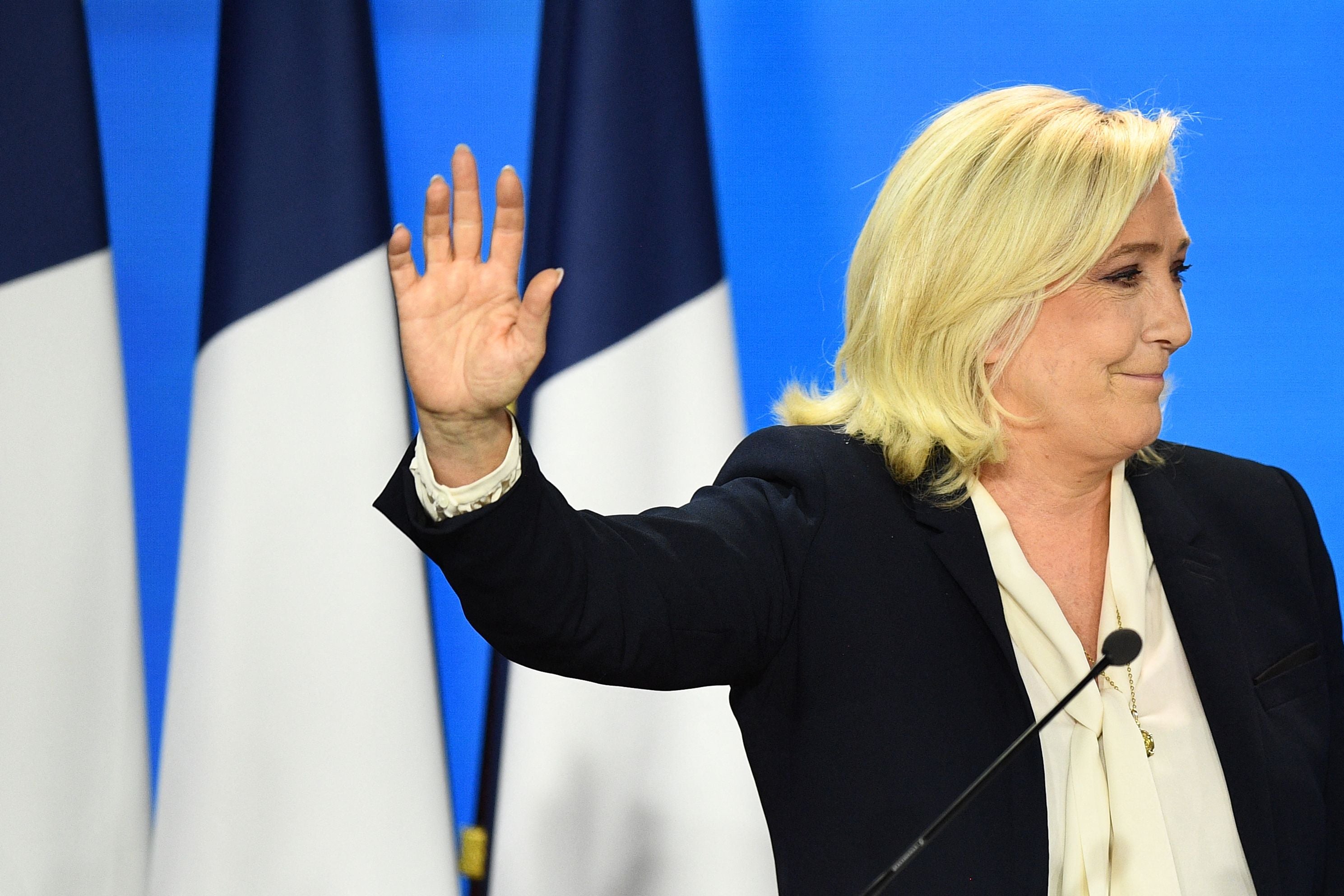
President Emmanuel Macron said he would rule for “all” of France after he was projected to become the first French leader to win re-election in 20 years after an exit poll predicted he had comfortably defeated rival Marine Le Pen.
An Ipsos poll gave Mr Macron 58.2 per cent of the vote and Marine Le Pen just 41.8 per cent, a decisive victory despite doubts about the current president’s handling of the economy and ability to connect with voters, and despite a lower-than-usual turnout.
Other polls by four major research companies predicted that Mr Macron had won with at least 55 per cent of the vote, compared with at most 45 per cent for Ms Le Pen.
Talking to cheering supporters at the Eiffel Tower, Mr Macron said: “I’m not the candidate of one camp any more, but the president of all of us.”
He added: “I will work for a more just society and equality between men and women. We need to show respect because our country is so divided... no one will be left by the wayside.”
His speech was followed by a rendition of the French national anthem.
If the projections hold, Mr Macron will become only the third president since the founding of modern France in 1958 to win twice at the ballot box, and the first in 20 years, since the then incumbent Jacques Chirac trounced Ms Le Pen’s father in 2002.
Several hundred Macron supporters gathered in front of the Eiffel Tower, singing the national anthem and waving French and European flags, as television stations broadcast the initial projections of his win.
A surge in the weeks leading up to the first round of the elections by Ms Le Pen, who inherited her father’s 50-year-old far-right political movement, had spooked European Union leaders, who issued ringing endorsements for the incumbent.
Despite the defeat, the far right secured more than 40 per cent of the vote for the first time in France. Ms Le Pen was beaten 66 per cent to 34 per cent by Macron in 2017. And her father got less than 20 per cent against Mr Chirac.
Ms Le Pen added: “Tonight’s result is in itself a remarkable victory [for us]. Emmanuel Macron will do nothing to repair the fractures that divide our country and make our compatriots suffer.”
She added that she would “carry on my engagement for France and the French”.
It was her third attempt to win the presidency, and many speculated that it could be her last.
Mr Macron, a centrist who oversaw the country during the coronavirus pandemic, is a key player in the ongoing international effort to challenge Russia’s invasion of Ukraine. He was propelled to power by voters like 56-year-old Isabelle Mayneris. The Paris estate agent and consultant said she had voted for Mr Macron because he had been doing a relatively good job for France.
“I like what he did for young people,” she said, after casting her ballot in central Paris. “No one talks about unemployment any more because he has created so many jobs. Everyone says he’s arrogant. I say he’s intelligent.”

Speaking immedately after the projections were announced on Sunday evening, Ms Le Pen thanked the “millions of our citizens” she said had voted for change.
Sunday’s closely watched vote held enormous implications for France, Europe and the world. European Commission president Ursula von der Leyen and Dutch prime minister Mark Rutte swiftly congratulated Mr Macron.
“I look forward to continuing our extensive and constructive cooperation within the EU and Nato, and to further strengthening the excellent relationship between our countries,” Mr Rutte said on Twitter. Ms Von der Leyen tweeted in French, “together we will make France and Europe advance”.
Britain’s Boris Johnson wrote on Twitter: “Congratulations to Emmanuel Macron on your re-election as president of France.
“France is one of our closest and most important allies. I look forward to continuing to work together on the issues which matter most to our two countries and to the world.”
Mr Macron faces enormous domestic and international challenges, but is constitutionally barred from running for a third term and will face less political pressure in his second term.
He won the vote with the support of the left, and he will need at least some of their support ahead of parliamentary elections in June. Many of those who voted for Mr Macron in the second round did so less out of support for him than for fear of his opponent, Ms Le Pen.
“The programme of Marine Le Pen is not clear at all,” said Boualem Hidjem, a 55-year-old civil servant who is of Muslim north African descent. “What does she want to do? Deport us?”
Mr Hidjem voted for the far-left candidate Jean-Luc Melenchon in the first round of the vote, and said he hoped that Mr Macron would be a president to all French by helping improve the economy as well as addressing people’s worries about security and crime.
“I hope he will take account the desires not only of people who voted for Jean-Luc Melenchon, but also those who supported Marine Le Pen,” he said.







